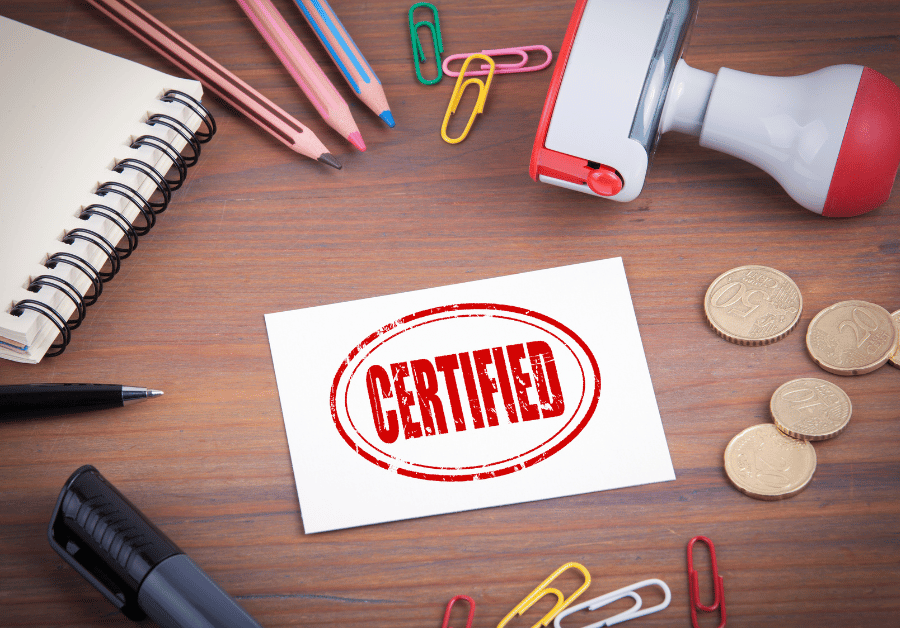Building Certifier Australia: Your Essential Guide to Compliance & Approvals
Starting a building project in Australia? It can feel like you're wading through a maze of rules and regulations. Whether you're planning a new home in Sydney, a commercial development in Melbourne, renovations in Brisbane, or any construction work across Perth, Adelaide, or Hobart, a building certifier is key. They make sure your project is legal and safe.
At Get 3 Quote, we know finding the right expert can be tough. That's why we connect you with trusted, local building certifiers. This guide explains what a building certifier does, why they're important, and how to make smart choices for your project.
What Does a Building Certifier Actually Do?

A building certifier (also called a private certifier or building surveyor) is an independent expert who makes sure building work follows all the right laws, codes, and standards. They're like the gatekeepers of safety and compliance, protecting you and the community.
They're involved from the start of your project to the very end. Here's what they do:
1. Checking and Approving Building Plans
Before any construction happens, your building certifier will carefully look at your plans. They check that everything follows the National Construction Code (NCC), Australian Standards, and local council rules. This is crucial for getting building approvals and making sure your design is solid and compliant. They'll give you expert advice on any changes you need to make.
2. Issuing Building Permits and Consents
Once they're happy with the plans, the building certifier can issue a building permit. This legal document lets you start construction, showing that your project has passed all the necessary checks. For example, in South Australia, under the PDI Act, a building certifier is vital for the development application and approval process.
3. Doing Inspections at Different Stages
Throughout construction, the building certifier will do mandatory inspections at important points. This includes checking the foundations, frame, and final completion. These inspections make sure the work is being done according to the approved plans and the NCC. They ensure everything is structurally sound, fire-safe, and accessible. In Adelaide, these inspections are standard to ensure quality and compliance.
4. Issuing Certificates of Occupancy
When all the work is done and passes the final inspection, the building certifier issues a Certificate of Occupancy. This certificate says the building is safe and ready to use. You can't legally occupy or use the building without it.
5. Providing Expert Advice
A good building certifier offers helpful advice throughout your project. They can explain complex rules, suggest compliant solutions, and help you handle any unexpected problems. Their expertise helps your project run smoothly from start to finish.
Why Do You Need a Building Certifier?

Hiring a building certifier is required by law for most construction work in Australia, but they offer much more than just compliance. They're your project's champion for safety, quality, and peace of mind.
- Reduces Risks: A building certifier helps you avoid costly mistakes, legal problems, and penalties. They spot issues early, saving you time and money.
- Ensures Safety and Quality: Their inspections make sure your building is structurally sound and safe. This is especially important for big developments in cities like Sydney and Melbourne.
- Offers Impartiality: As independent professionals, building certifiers give an unbiased assessment of your project.
- Speeds Up Approvals: Their knowledge of the planning system and building code can speed up the approval process.
- Increases Property Value: A compliant, well-built building adds value to your property.
Whether you're doing a small renovation or a large commercial project, a building certifier's expertise is essential. They provide oversight, making sure your investment is sound and your building is safe.
Building Certification: What's the Process?
Knowing what to expect when working with a building certifier can help you prepare. Here's a general outline:
-
Initial Consultation
First, you'll contact a building certifier. Discuss your project, get initial advice, and understand what documents you'll need. Discuss requirements for your project in Adelaide or a commercial build in Brisbane.
-
Submitting Plans
You'll submit detailed plans, specifications, and other documents to the building certifier.
-
Plan Assessment
The building certifier reviews everything against the NCC, Australian Standards, and local rules. They'll identify any issues.
-
Getting Your Permit
Once everything is sorted, the building certifier issues the building permit.
-
Staged Inspections
During construction, the building certifier does inspections at key stages. In Perth, a private certifier will do these inspections carefully.
-
Final Inspection
When everything is done, there's a final inspection. If all is well, the building certifier issues the Certificate of Occupancy.
How to Choose the Right Building Certifier
Choosing the right building certifier is key. Here's what to look for:
- Accreditation: Make sure they're accredited and registered with the right state authority.
- Experience: Find someone with experience in projects like yours.
- Local Knowledge: A building certifier familiar with local council rules in Sydney, Melbourne, Brisbane, Perth, Adelaide, or Hobart is a big plus.
- Communication: Choose someone who communicates clearly and professionally.
- Reputation: Look for reviews and testimonials.
Platforms like Get 3 Quote make finding a building certifier easier by connecting you with verified professionals.
Common Misunderstandings About Building Certifiers
There are some common myths about building certifiers:
| Myth | Reality |
|---|---|
| A building certifier is the same as a building inspector. | A building certifier handles regulatory compliance, while a building inspector does general inspections. |
| The building certifier designs my project. | No, they review plans for compliance. Design is for architects or designers. |
| They're responsible for the builder's work. | The builder is responsible, but the building certifier ensures compliance. |
| I only need a building certifier for big projects. | Most new builds and major renovations require one, regardless of size. |
Regional Differences in Building Certification
While the core job of a building certifier is the same across Australia, local laws and council rules vary. Here's a quick look at some major cities:
- Sydney & NSW: Private Certifiers handle various certificates under the Environmental Planning and Assessment Act.
- Melbourne & Victoria: Private Building Surveyors issue Building Permits and Occupancy Permits under the Building Act 1993.
- Brisbane & Queensland: Private Building Certifiers issue Building Approvals and Certificates of Occupancy under the Building Act 1975.
- Perth & Western Australia: Building Surveyors issue Building Permits and Occupancy Permits under the Building Act 2011.
- Adelaide & South Australia: Private Certifiers play a key role in development applications under the PDI Act.
- Hobart & Tasmania: Building Surveyors provide Building Permits and Certificates of Completion under the Building Act 2016.
No matter where you are, an experienced building certifier will have the local knowledge to ensure your project is a success.
Get 3 Quote: Find Trusted Building Certifiers
Finding the right building certifier can be tough. Get 3 Quote simplifies the process by connecting you with trusted professionals across Australia.
Here's how it works:
- Tell us what you need: Fill out our online form with details about your project.
- Get quotes: We'll connect you with up to 3 verified local professionals.
- Choose the best match: Compare quotes, read reviews, and choose the perfect building certifier for your needs.
With Get 3 Quote, you save time and gain confidence knowing you're working with a reliable professional.
Ready to Start Your Project?
Understanding the role of a building certifier is the first step. From following the NCC to navigating local rules in different cities, these professionals are essential.
Let Get 3 Quote connect you with reliable and experienced building certifiers in your area. Get your free quotes today!
